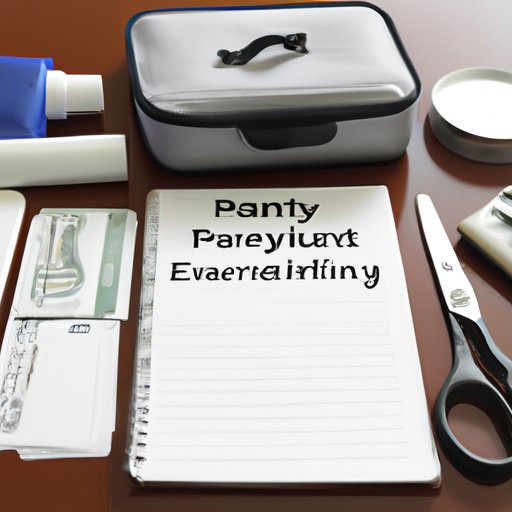Introduction
Vacations are a time to relax, explore new places, and create memories that will last a lifetime. But before you can start packing your bags and heading off on your next adventure, you need to plan it out. Planning a vacation can seem like a daunting task, but by following a few simple steps, you can ensure that your trip goes smoothly.
Why is it important to plan a vacation? According to the American Psychological Association, planning a vacation can help reduce stress levels and increase feelings of happiness and well-being. In addition, when you plan ahead, you can save money by taking advantage of discounts, early-bird specials, and other travel deals.
This article will cover all aspects of planning a vacation, from researching the destination to preparing for emergencies. By the end of this guide, you will have all the information you need to make sure your trip is as enjoyable and stress-free as possible.
Research the Destination
The first step in planning a vacation is to research the destination. This includes learning about the area, activities available, and any safety concerns. You can find this information online or from guidebooks, travel agents, and other travelers who have been to the destination.
When researching the destination, take note of the climate and weather conditions. This will help you decide what type of clothing to pack and what activities will be suitable for the time of year you plan to visit. Additionally, research any cultural customs and etiquette that you should be aware of when visiting the destination.
Finally, research any local attractions or activities that you may be interested in doing. This could include visiting museums and monuments, going on guided tours, or participating in outdoor activities. By researching the destination thoroughly, you can ensure that you get the most out of your trip.
Set a Budget
Once you have researched the destination, the next step is to set a budget. Determine how much money you have to spend on the trip and decide how much you are willing to allocate to each expense, such as accommodations, transportation, food, and activities.
It is also important to factor in any additional costs, such as visa fees, currency exchange rates, and insurance. Doing so will ensure that you don’t exceed your budget and end up returning home with more debt than you planned for.
Make an Itinerary
Making an itinerary is an important step in planning a vacation. An itinerary outlines the activities and sightseeing spots you plan to visit during your trip. It also helps you stay organized and ensures that you don’t miss out on any of the attractions you wanted to see.
When making an itinerary, consider how much time you have available and what activities you want to do. If you are visiting multiple destinations, make sure to leave enough time to travel between them. Additionally, research any entrance fees or reservations that may be required for certain activities.
Book Accommodations
Now it’s time to book accommodations. When choosing a hotel or rental, consider your budget and needs. Do you want a private room or would you prefer to stay in a shared space? Do you need access to a kitchen or other amenities? Once you have narrowed down your options, compare prices and read reviews to make sure you are getting the best deal.
If you are staying in a hotel, check if there are any special offers or discounts available. Many hotels offer discounts for AAA members or senior citizens, so be sure to ask about any potential savings.
Consider Transportation
Once you have booked your accommodations, it’s time to consider transportation. Depending on where you are traveling, you may need to fly, drive, or take public transportation. If you are flying, compare prices and book your tickets in advance to get the best deal.
If you are driving, make sure to research the routes and plan for any stops along the way. Additionally, consider renting a car or using ride-sharing services, such as Uber or Lyft. Public transportation is also an option if it is available in the area.
Prepare for Emergencies
No one likes to think about emergencies, but it’s important to be prepared in case something unexpected happens. Put together a travel emergency kit with important documents, such as your passport and driver’s license, and contact information for family and friends. Additionally, make sure to bring any medication you need and a basic first aid kit.
It’s also a good idea to research any medical facilities in the area and inquire about health insurance coverage. Finally, make sure to inform your bank and credit card companies that you will be traveling to avoid any problems with fraudulent charges.
Conclusion
Planning a vacation can seem like a daunting task, but by following these steps, you can ensure that your trip goes smoothly. Start by researching the destination and setting a budget. Then, make an itinerary, book accommodations, consider transportation, and prepare for emergencies. By following this guide, you can have a stress-free, enjoyable vacation.
(Note: Is this article not meeting your expectations? Do you have knowledge or insights to share? Unlock new opportunities and expand your reach by joining our authors team. Click Registration to join us and share your expertise with our readers.)
